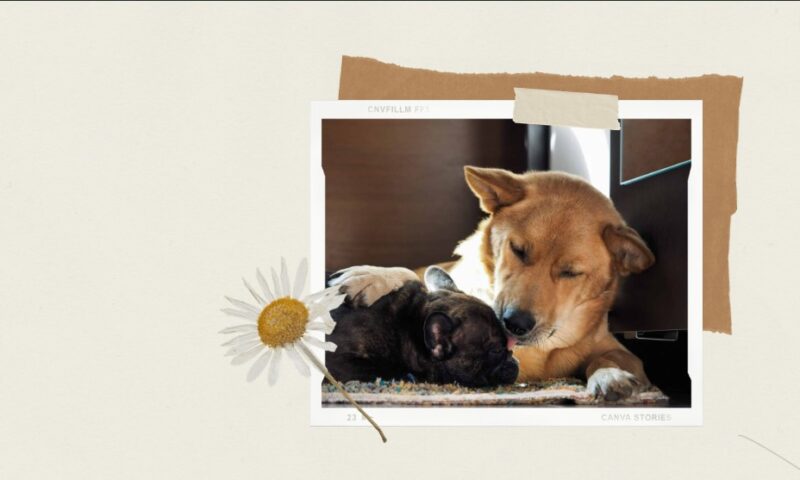Welcoming a new puppy into your home is an exciting time, but it can also bring about some curious behaviors in your older dog, such as excessive licking of the newcomer. While this behavior might seem puzzling, it is essential to understand that dogs communicate through various means, and licking is one of their primary forms of expression. In this educational article, we will delve into the reasons why your dog keeps licking your new puppy, exploring scientific research and insights to shed light on this endearing yet complex canine behavior.
Canine Communication: Licking as an Expression
Dogs employ a diverse range of body language and vocalizations to communicate with each other and with humans. Licking is a common form of communication among dogs and serves multiple purposes, including expressing affection, submission, and grooming behaviors. When your older dog licks your new puppy, it is likely an attempt to convey various messages.
Grooming and Maternal Instincts
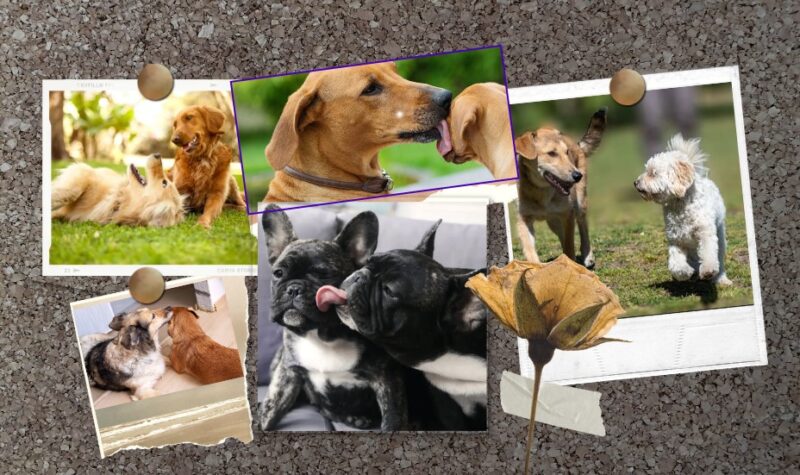
One of the primary reasons why your dog keeps licking your puppy is rooted in their natural grooming instincts. In the wild, mother dogs lick their puppies as a way to keep them clean and to stimulate urination and defecation. This grooming behavior is driven by the mother’s instinct to care for her offspring and create a sense of bonding within the litter.
While your older dog might not be the biological parent of the puppy, they may still display maternal or paternal instincts towards the young pup. The act of licking can be an expression of this instinct, as your dog tries to fulfill the role of caregiver and establish a bond with the new addition to the pack.
Establishing Social Hierarchy
In a multi-dog household, licking can also be a means for establishing and reinforcing social hierarchy. Dogs are pack animals, and their interactions are often governed by a structured hierarchy with an alpha or dominant member. When an older dog licks a puppy, it can be a way to assert their dominance and show their authority within the pack.
However, it is crucial to observe the overall body language and context of the licking behavior to determine if it is a positive interaction or if there is any aggression involved. Dominant dogs may display controlling behaviors through licking, which can lead to issues if not appropriately managed.
Communication of Trust and Affection
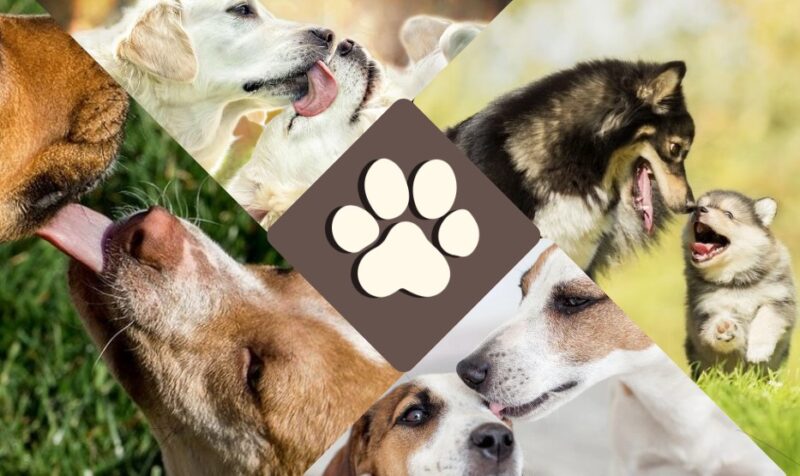
Licking is an essential part of canine bonding and communication of trust. When your older dog licks your new puppy, it is likely an indication of acceptance and affection. It is their way of saying, “You are part of the family, and I welcome you.” The puppy, in turn, may respond with submissive behaviors, further reinforcing the bond between them.
Scent Exchange and Familiarization
Dogs have an extraordinary sense of smell, and licking plays a role in scent exchange and familiarization. When your older dog licks your new puppy, they are absorbing the puppy’s unique scent and vice versa. This exchange helps in recognizing and accepting the puppy as a member of the pack.
Moreover, licking also leaves the older dog’s scent on the puppy, marking the newcomer with their own scent. This scent exchange is an integral part of establishing a harmonious pack dynamic.
Addressing Perceived Health Issues
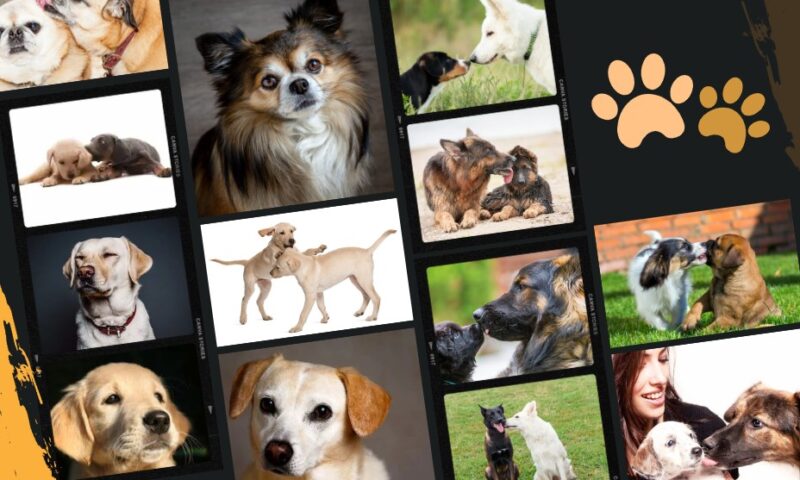
Another intriguing reason why your dog might keep licking your new puppy is their ability to detect subtle changes in the puppy’s body. Dogs have been known to sense changes in human health, such as alerting to seizures or detecting cancer, and similar phenomena might apply to their interactions with other dogs.
The older dog might lick the puppy more intensely if they perceive any health issues or discomfort. This heightened licking behavior could be a way of offering comfort or trying to alleviate the puppy’s discomfort. However, it is essential to distinguish between genuine concern and excessive licking that could cause irritation to the puppy’s skin.
Conclusion
In conclusion, your dog’s constant licking of your new puppy is a fascinating and multifaceted behavior with various underlying reasons. From grooming and maternal instincts to establishing social hierarchy and conveying affection, licking serves as a potent means of communication among dogs.
By understanding these reasons and being attentive to their interactions, you can promote a positive and healthy relationship between your older dog and the new puppy.
Remember, each dog is unique, and their behaviors may vary based on individual personalities and experiences. If you notice any concerning behaviors or excessive licking that leads to irritation or distress in the puppy, it is advisable to consult a professional veterinarian or animal behaviorist for guidance and support.
Embrace the beauty of canine communication, and cherish the heartwarming bond that develops between your older dog and the adorable new addition to your furry family. With patience, love, and understanding, your dogs will form a lasting and harmonious companionship that will bring joy to your home for years to come.
FAQs
My older dog licks the puppy’s genital area. Is this normal?
Yes, it is normal for dogs to lick the genital area of puppies. In the wild, mother dogs do this to stimulate urination and defecation. It’s a natural part of their caregiving and grooming behavior.
Can my older dog’s licking help in training the new puppy?
Yes, older dogs can play a role in training the puppy through licking. When the puppy responds with submissive behaviors to the older dog’s licking, it reinforces a positive and respectful dynamic between them.
Is licking a form of communication that continues throughout their lives?
Yes, licking remains a vital form of communication between dogs throughout their lives. It helps maintain social bonds, express affection, and communicate various messages within the pack.
Can my older dog detect health issues in the new puppy through licking?
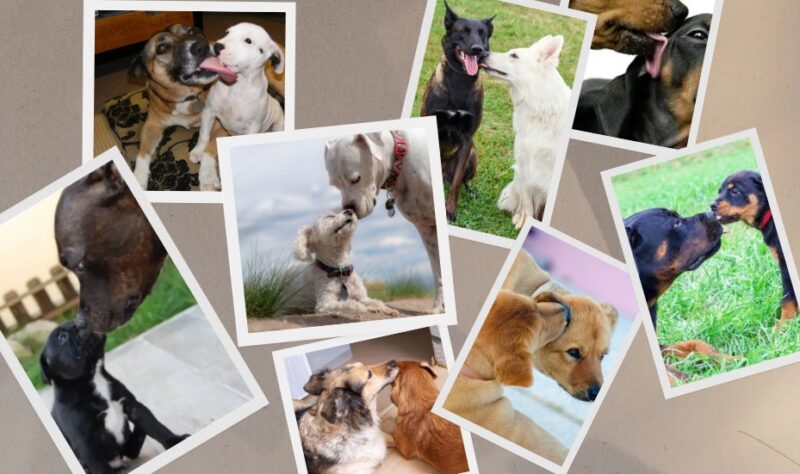
Some dogs may exhibit heightened licking if they sense health issues or discomfort in the puppy. However, while dogs have a keen sense of smell, it’s essential to rely on professional veterinary assessments for accurate health diagnoses.
Should I be concerned if my puppy doesn’t lick the older dog back?
Not necessarily. Dogs have different personalities, and some puppies may not respond with licking. As long as their interactions are otherwise positive and friendly, there’s no cause for concern.
Can I train my older dog to limit their licking of the puppy?
Yes, you can train your older dog to limit their licking through positive reinforcement techniques. Use commands like “enough” or “stop” and reward them when they comply.
Will the older dog’s licking behavior change as the puppy grows older?
As the puppy grows older, the dynamics between the older dog and the puppy may evolve. The licking behavior might decrease, but the bond and communication will likely remain an integral part of their relationship.
What should I do if the licking becomes excessive and bothersome for the puppy?
If the licking becomes excessive and causes discomfort for the puppy, consult a veterinarian or animal behaviorist. They can provide guidance on managing the behavior and ensuring the well-being of both dogs.

